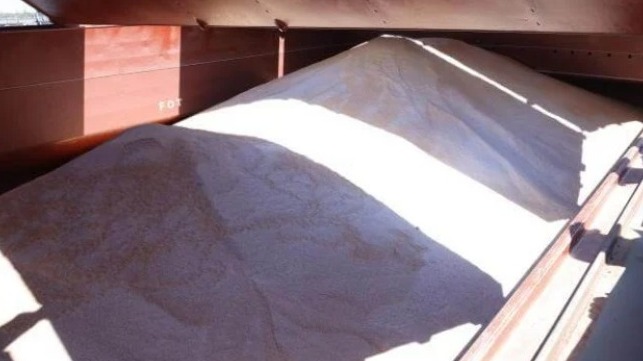Canada Commits Cargo Vessels to Help Move Ukraine's Wheat

The government of Canada plans to help Ukraine export its stranded wheat to nations where it is in high demand, its foreign affairs minister announced on Monday.
Russia has blockaded Ukraine's seaports, trapping dozens of foreign-flagged vessels and about 20 million tonnes of Ukrainian grain. That agricultural cargo - primarily wheat - is essential to food supplies in many developing nations, particularly in the Middle East and Africa.
With Ukraine's Sea of Azov coast under Russian control and its Black Sea ports under seige, the options for getting its grain to export markets are limited. Its closest alternative is the Romanian port of Constanta, reachable by land transport and by inland barge; however, the potential volume is restricted by multiple bottlenecks. The EU has stepped up with the creation of "Solidarity Lanes" to speed cross-border transport of grain cargoes by road and rail, facilitating onward delivery to EU ports for export.
Canada is joining the effort, foreign minister Melanie Joly announced on Monday. “We are on this. We are in solution mode and it’s Canada’s contribution to making sure that we participate in this great mission of freeing the Ukrainian wheat," Joly told Canadian media.
Canada plans to dispatch cargo ships to pick up Ukrainian wheat in Romania and other Black Sea states, then deliver the food where it is needed most - countries like Egypt and Lebanon, which get a substantial share of their sustenance from Ukraine's wheat fields. Russia's war has created a "potential food crisis," Joly told Politico, and the West needs "to do more to show African countries, Latin American countries and Middle Eastern countries and Asian countries that we are there to share solutions."

that matters most
Get the latest maritime news delivered to your inbox daily.
World Food Program director David Beasley has warned of an impending humanitarian disaster if Ukraine's wheat remains stuck in storage. If the blockade is not lifted, there will be no silo space for the next harvest in July/August, raising the prospect of millions of tonnes of wasted grain. Meanwhile, WFP is already cutting food aid rations to desperate populations in Syria, Yemen and elsewhere because of the soaring cost (and reduced supply) of wheat.
“Right now, Ukraine’s grain silos are full. At the same time, 44 million people around the world are marching towards starvation. We have to open up these ports so that food can move in and out of Ukraine. The world demands it because hundreds of millions of people globally depend on these supplies," Beasley said Friday. "We’re running out of time and the cost of inaction will be higher than anyone can imagine. I urge all parties involved to allow this food to get out of Ukraine to where it’s desperately needed so we can avert the looming threat of famine."
